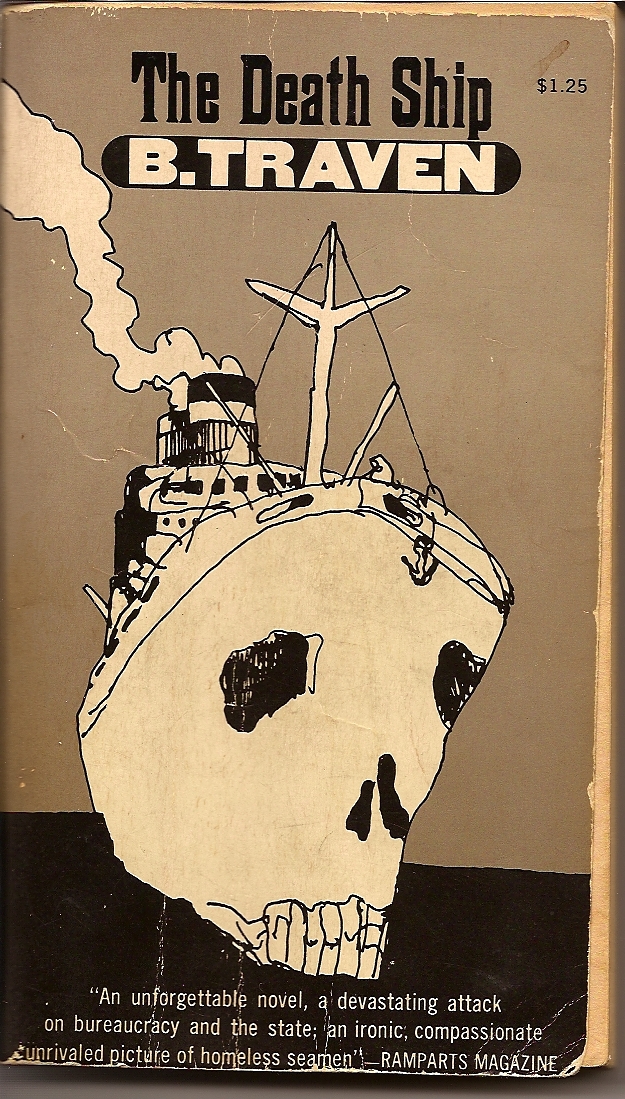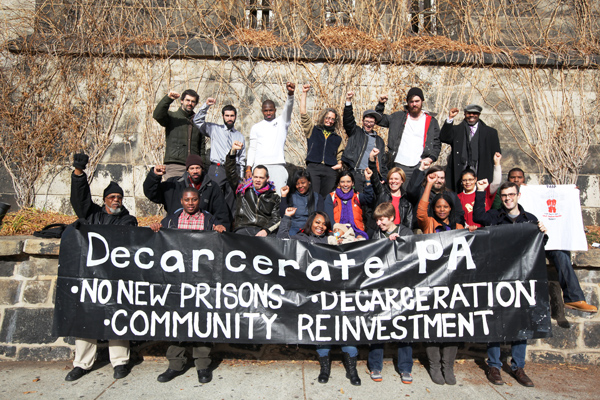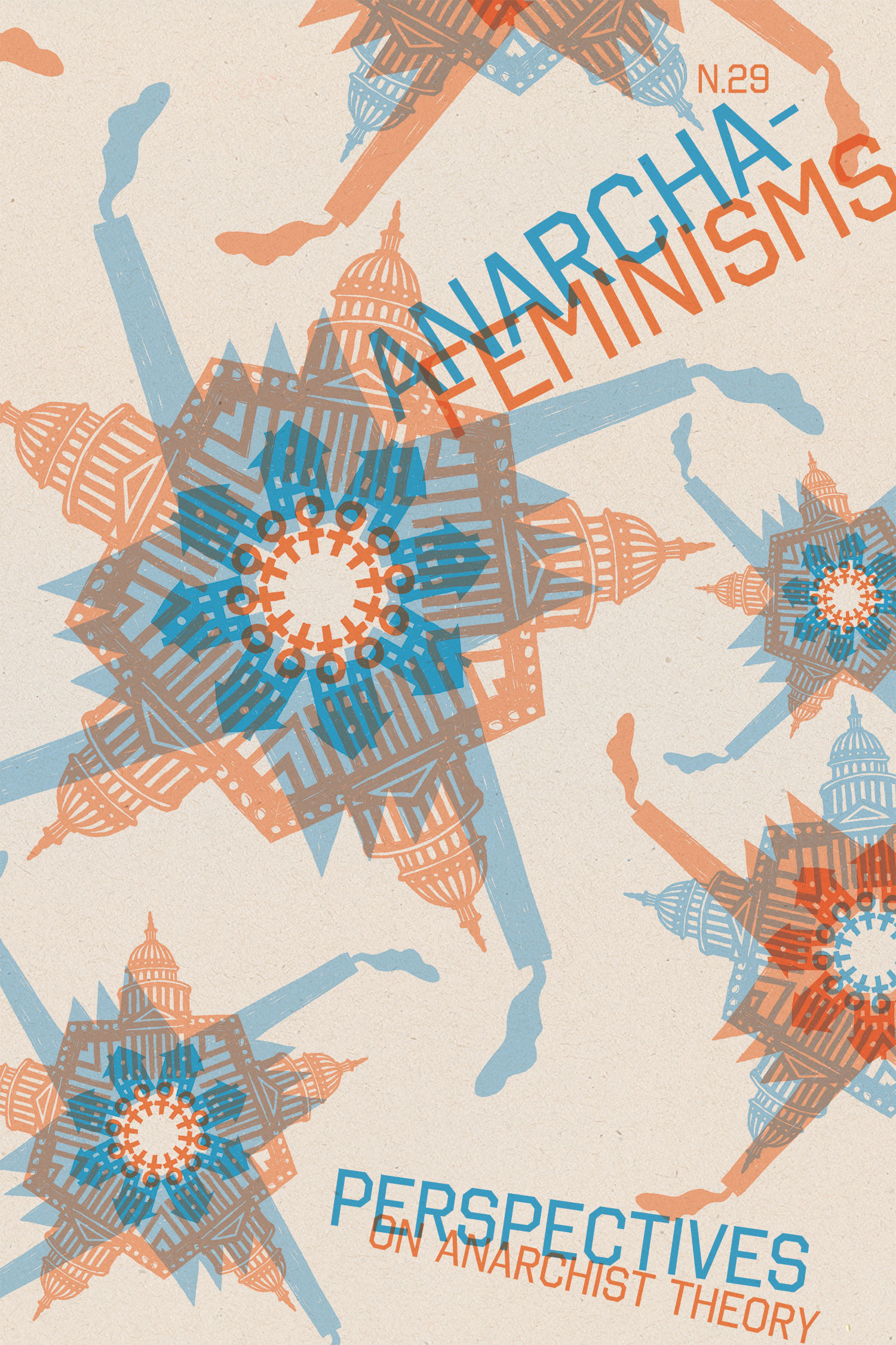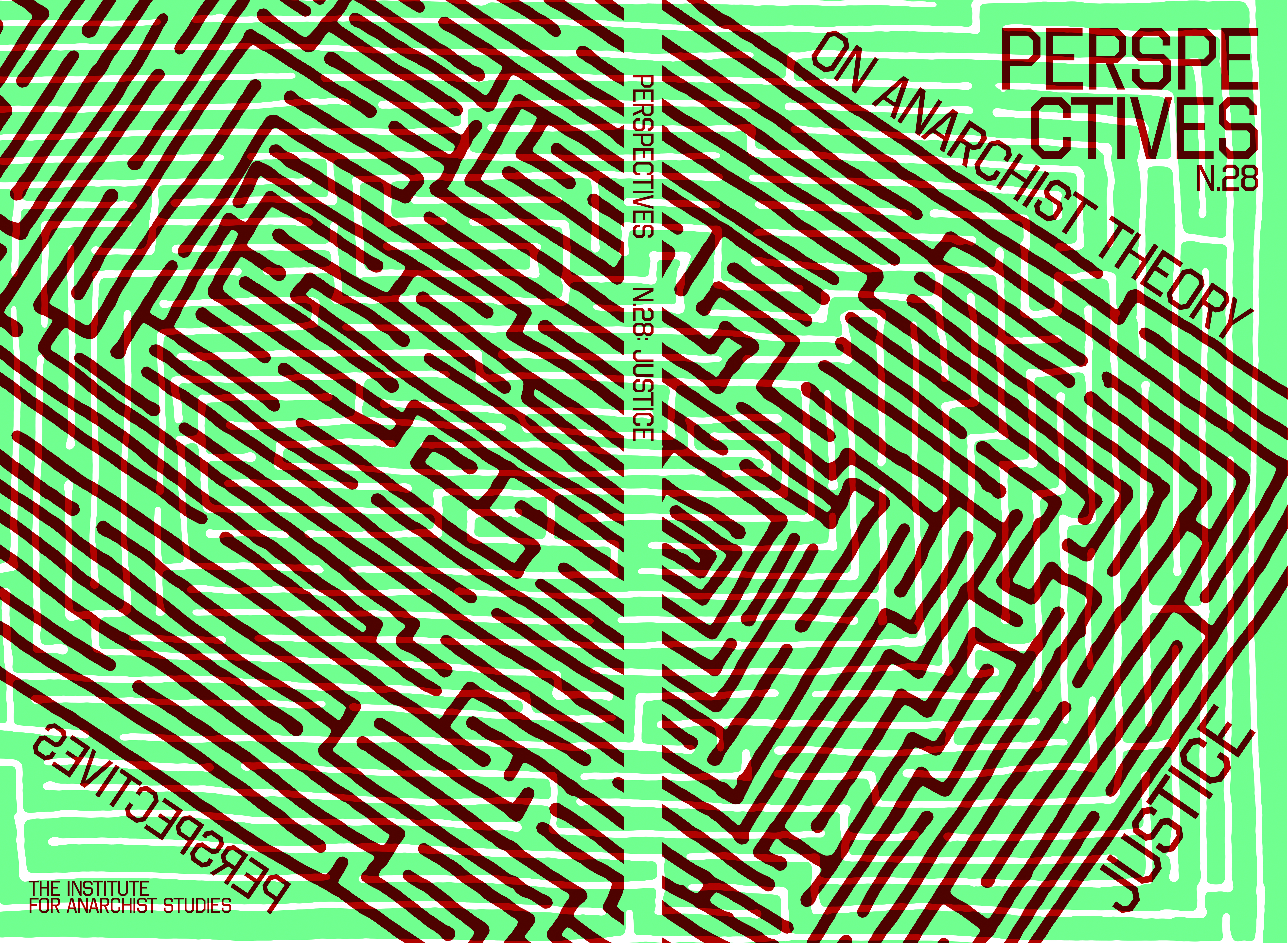I was 15, living in a suburban middle-class part of Anchorage, Alaska, when the subversive package arrived—my first committed step on the anarchist path.
It was the winter of 1996, and maybe just six months before, some anecdotes from a beloved radical teacher got me curious about a thing called anarchism. Soon enough, I was doodling circle-As in the margins of my notebooks. Then I was trying, through brute force, to make my way through Howard Zinn and Noam Chomsky. Then—oh, the most cliché gateway into anarchism for kids of my demographic—I found punk rock. And there, in the insert of one of my first punk albums, I learned about AK Press. Brandishing a 56k modem, a phone, and a few hundred dollars that I got once a year from Alaska’s strange, oil-based dividend checks, I ordered a load of literature and odds and ends: Anarchy by Errico Malatesta. Living My Life by Emma Goldman, The Ecology of Freedom by Murray Bookchin, something about participatory economics by Michael Albert; Situationist pamphlets and grassroots organizing manuals; tiny punkish pins and a slew of garish t-shirts crammed with ironic faux-corporate logos, stenciled fists, and slogans in block letters. I’ll admit that, for a little while, I just basked in my new consumer identity as an anarchist. Then I actually read the stuff and, Wow, I really was an anarchist! From that cacophonous, often inscrutable, mix of texts, I found a personal worldview, ethics, even a spirituality that came to guide the course of my life.
 IAS
IAS
Re-evaluating B. Traven, by John Z. Komurki
The novelist, short story writer, fantasist, and revolutionary B. Traven has been called “the greatest literary mystery of [the Twentieth] century.”[1] “My life story would not disappoint,” Traven himself says in an essay on his breakthrough novel Das Totenschiff (The Death Ship), published in 1926; nevertheless, the author chose to divulge almost nothing beyond scattered, putatively autobiographical references in his novels.

Traven is a pseudonym. The writer’s real name, nationality, date and place of birth, as well as many other biographical details, remain disputed. That is, in part, why he is commonly referred to (adapting the title of one of his collections) as “the man nobody knows.” More, perhaps, than his writing, it is this carefully cultivated mystery, this series of increasingly elaborate smokescreens, ruses and double bluffs, for which B. Traven is most famous today.
Support Radical Writing and Publishing!
If you missed your opportunity to support radical writers and publishing during our recent fundraising campaign, there’s still time to make a donation. The Institute for Anarchist Studies is about to publish issue N. 29 of Perspectives on Anarchist Theory on the theme of Anarcha-Feminisms, in … Read more
Walidah Imarisha launches Angels with Dirty Faces in Portland!
Great turnout at Portland, Oregon’s Powell’s Books for the launch of Angels with Dirty Faces, new from the Institute for Anarchist Studies and AK Press. Get a copy here from AK!
2016 IAS Writing Grants
We would like to congratulate four recipients of IAS writing grants for 2016. We chose these four out of sixty-two applications. They are: Henna Rasanen, writing Weltuntergang: A Queer Post-Apocalyptic Graphic Novel; Jeremey Louzao, writing “The Friendly Neighborhood Anarchist: Embracing the Groundwork that Makes Revolutions Possible;” Mona Luxion, writing “#Printemps2015: Lessons from Québec’s Stunted Anarchist Anti-Austerity Mobilization;” and Toshio Meronek, writing “They Won’t Quit: LAGAI Queer Insurrection.” Congrats! Our next deadline to apply for a writing grant is January 15th, 2017. Go here to apply for a grant.
Brick by Brick: Creating a World Without Prisons, by Layne Mullett
This essay appears in the current issue of Perspectives on Anarchist Theory, N. 28, on the topic of Justice. The full issue is available from AK Press here!
Since the publication of Michelle Alexander’s The New Jim Crow: Mass Incarceration in the Age of Colorblindness in 2012, there has been much talk about the need to end mass incarceration. More and more people are speaking publicly about the moral and financial implications of maintaining the world’s largest prison system. However, what it means to end mass incarceration, and what it would take to end it, is less clear.
Mass incarceration plays a central role in maintaining state and capitalist power in the United States, and abolishing the prison system must play a central role in movements for radical change. Mass incarceration allows the state to perpetuate unpopular economic policies that would not be possible in the face of strong resistance movements. While reform efforts might cause the structures of mass incarceration to shift, and lead to decreases in the prison population (as is already happening in some places), a more fundamental transformation is necessary if we hope to see an actual rather than cosmetic shift in the meaning and practice of “justice.”

Our efforts to end mass incarceration cannot be rooted in reform, but must instead address the structural roots that have given rise to the world’s largest prison system. We must create movements that thrive on our differences and build on our strengths. The prison system sits at the nexus of multiple forms of oppression, so we must generate analysis and resistance that is intersectional. Supporting political prisoners, developing the capacity to withstand state repression, and embracing meaningful forms of justice and healing, horizontal models of sharing power, and feminist and queer ways of understanding the multitude of possible futures are all part of this struggle.
Angels with Dirty Faces Book Launch!
Fresh from co-editing the wildly successful sci fi collection Octavia’s Brood: Science Fiction Stories from Social Justice Movements for AK Press and the IAS, Walidah Imarisha gets very real in her new book about prisons and the legal system, Angels with Dirty Faces: Three Stories of Crime, Prison, and Redemtion (AK/IAS). Join us at Powell’s on Hawthorne (3723 SE Hawthorne Blvd) in Portland, Oregon on Monday, March 14th at 7:30 for the Angels with Dirty Faces book launch!
This is no romanticized tale of crime and punishment. The three lives in this creative nonfiction account are united by the presence of actual harm—sometimes horrific violence. Imarisha, dealing with the complexities of her own experience with sexual assault and accountability, brings us behind prison walls to visit her adopted brother Kakamia and his fellow inmate Jimmy “Mac” McElroy, a member of the brutal Irish gang the Westies. Together they explore the questions: People can do unimaginable damage to one another—and then what? What do we as a society do? What might redemption look like?
Support the Publication of Perspectives on Anarcha-Feminisms!
We are a group of six people in Canada and the US who collectively publish Perspectives on Anarchist Theory, the journal of the Institute for Anarchist Studies.
Perspectives, published since 1997, has gone through various editors and styles, but the current version has been published since 2010 with layout, art, and design done by Josh MacPhee of Justseeds Cooperative. We all donate countless hours to this work, because we love doing it. About our current issue, CrimethInc. said, “this journal is setting out to do something different. It manages to present a wide array of nuanced and critical articles while remaining accessible, which is quite refreshing … Perspectives on Anarchist Theory is well worth a read for anyone interested in insightful reflections on contemporary struggles from an antiauthoritarian viewpoint.”

CrimethInc. Reviews Perspectives on Anarchist Theory
Alanis, who does the podcast for CrimethInc. Ex-Workers’ Collective, with her partner in crime Clara, did a really thoughtful review of the current issue of Perspectives on Anarchist Theory (n.28) in their most recent broadcast. We excerpt it below, and provide links to the broadcast, the full transcript of the show, and to CrimethInc.’s website as well. Thanks comrades!
Perspectives on Anarchist Theory’s recent issue tackled the theme of “Justice” – quite a can of worms for the contemporary anarchist! The journal opens with a reflection on the theme written by the editorial collective, and quickly sets a thoughtful and inquisitive tone as it explores different dimensions of what justice might mean to anarchists in political, economic, ecological, and intra-movement or community contexts. It uses a series of rhetorical questions to prompt readers to examine our thoughts and values relating to justice without authority and the practical challenges posed by social oppression and reliance on state structures. While I sharply disagreed with their partial defense of certain principles of the US’s adversarial legal system, overall I found the introduction to be highly thought-provoking, and an excellent lens through which to read the forthcoming pieces.

Field Notes From an Archipelago: A Review of Grabbing Back: Essays Against the Global Land Grab (AK Press, 2014), edited by Alexander Reid Ross, by Will Munger
A land and water grab is happening in the canyons and plateaus where I live in rural Utah. Several Canadian corporations backed by transnational investors are moving in to extract tar sands and oil shale on public lands. These outfits are the spear tips of a host of operators who are trying to strip mine the world’s dirtiest oil in the headwaters of the Colorado River, one of North America’s most endangered rivers.
In a region already hit by more than a decade of drought, the mining corporations are drilling deep into underground aquifers to pump water for their processing operations. At the ranch where I work, the springs in the canyon downstream from the initial mine are drying up. The ranching family is one of the first to be impacted by the mine, but there are bigger implications, as waste discharged from the mines will impact more than 30 million people who rely on the Colorado River for drinking water and irrigation.
And then there are the climate change consequences. According to industry backers, there are more potential fossil fuels in the Green River formation that stretches across Utah, Wyoming, and Colorado than the Alberta tar sands. If the infrastructure for these types of megaprojects is completed, there is an almost certainty of being locked in a path toward catastrophic climate change.
 With these stunning contradictions in mind, and with all legal options exhausted, local people and climate justice rebels took matters into their own hands in the summer of 2014 by establishing a resistance camp on the mine lease in order to halt mining operations. Amidst a summer of blockades, police repression, and the stresses of day-to-day rural resistance, it’s been a challenge to maintain a global perspective. It’s clear that our fight is being driven by capital and technical knowledge generated through the exploitation of the Alberta tar sands. It’s also clear that there are financiers intending to export these mining operations around the world using corporations deeply tied to the military industrial complex.
With these stunning contradictions in mind, and with all legal options exhausted, local people and climate justice rebels took matters into their own hands in the summer of 2014 by establishing a resistance camp on the mine lease in order to halt mining operations. Amidst a summer of blockades, police repression, and the stresses of day-to-day rural resistance, it’s been a challenge to maintain a global perspective. It’s clear that our fight is being driven by capital and technical knowledge generated through the exploitation of the Alberta tar sands. It’s also clear that there are financiers intending to export these mining operations around the world using corporations deeply tied to the military industrial complex.
But what are the strategic and tactical implications as to how we should carry out our struggle? What are our relationships and responsibilities to other communities fighting exploitative land grabs around the world? How can we use our collective power to fundamentally transform the political and economic structures that facilitate this ecocidal rush?
While thinking through these questions, I came across a copy of Grabbing Back: Essays Against the Global Land Grab. This compilation is billed as an “illustrative field guide to the way people power responds to the global land grab.” It ranges from pieces written by voices new to me, like Yangtze River Delta Earth First!, to long time writers and movement elders, like Grace Lee Boggs, Max Rameau, Vandana Shiva, Noam Chomsky, and Silvia Federici.

